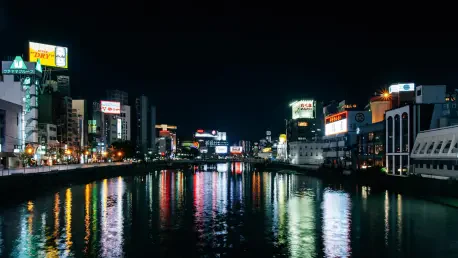Once a magnet for global travelers due to its historical richness and picturesque landscapes, Syria now seeks to revive its tourism sector as a pivotal strategy for economic recovery. This initiative emerges following years of devastating civil conflict. Syria is home to some of the world’s most celebrated historic sites, including Palmyra and the ancient city of Damascus, along with breathtaking natural attractions such as Mediterranean beaches and diverse terrains. Prior to the war, Syria attracted millions of tourists, with a yearly influx generating billions in revenue. This historical success story highlights the potential that tourism holds in the country’s post-war reconstruction, offering opportunities in various niches such as cultural and eco-tourism, wellness retreats, and thrilling adventure activities.
Reimagining Tourism with Regional Inspirations
Cultural and Nature-Based Tourism Models
Syria is drawing lessons from successful regional models, like the AlUla development in Saudi Arabia, which have effectively emphasized sustainability and economic growth through tourism. Nature-based tourism in Syria is gaining traction, catering to adventurous spirits with guided hikes and engaging local accommodations. These strategies are invigorating the hospitality and service industries, promoting a sustainable approach that benefits local communities while conserving Syria’s rich ecological heritage. Furthermore, the easing of international sanctions by the United States and European Union has infused new energy into investor confidence, creating an environment conducive to revitalizing Syria’s presence on the global tourism stage.
Infrastructure and Accessibility
The restoration of Syria’s tourism infrastructure is vital to re-emerging as a sought-after travel destination. Efforts to update hotels that reflect global standards and improve transport facilities are in planning, aiming to enhance the overall visitor experience. The interest from SunExpress Airlines to initiate flight operations to Syria illustrates a renewed accessibility that could lead to an uptick in tourist arrivals. This increased accessibility is instrumental in redefining Syria’s global image, presenting it not just as a historical cocoon but a vibrant locale teeming with new possibilities. Collaboration with international airlines and tourism operators could further transform Syria’s tourism landscape, offering a fresh perspective on travel in a rejuvenated nation.
Reviving Cultural Heritage and Building Trust
Restoration of Historic Sites
Preserving and restoring its cultural heritage is a cornerstone of Syria’s tourism strategy. The Directorate-General of Antiquities and Museums is tasked with leading efforts to repair damaged sites, ensuring that Syria’s rich historical tapestry is accessible for future generations. The preservation of iconic landmarks not only attracts tourists but also reinforces Syria’s identity on the global stage. Grassroots movements and the active participation of the Syrian diaspora have proven to be essential in these restoration efforts. Their diverse cultural and linguistic skills not only aid the rebuilding process but also enrich the narrative of Syria’s history for international visitors.
Overcoming Challenges
Despite the positive steps, Syria continues to face significant challenges that threaten its tourism aspirations. Infrastructure redevelopment, enhancing security measures, and fostering stronger international trust are areas requiring concerted effort. These barriers must be addressed to create a secure and welcoming environment for tourists. Moreover, strengthening international relationships remains critical to rebuilding trust, necessitating transparent communication and collaboration with global agencies. If Syria can sustain its efforts to improve infrastructure while ensuring visitor safety, its tourism sector stands a chance of reclaiming its role as a vital contributor to national economic recovery.
The Path Forward
Syria is taking cues from triumphant regional developments like AlUla in Saudi Arabia, which have adeptly highlighted sustainability and economic growth through tourism. There is a growing interest in nature-based tourism within Syria, appealing to adventurous individuals through guided hikes and authentic local lodging options. These approaches are revitalizing the hospitality and service sectors, fostering a model that supports local communities and preserves Syria’s bountiful ecological heritage. In addition, the relaxation of international sanctions by the United States and European Union has bolstered investor confidence, paving the way for Syria to rejuvenate its standing in the global tourism arena. As the country integrates successful elements from these examples, it aims to nurture its own unique tourism assets, positioning itself as an appealing destination that marries adventure with ecological and economic consciousness, ultimately benefiting both residents and visitors alike.









